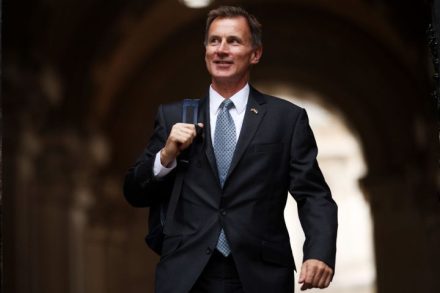Jeremy Hunt’s sober Budget briefing
How times change: seven months ago we were eagerly awaiting the Tiggerish Liz Truss and Kwasi Kwarteng’s fiscal event, replete with much boosterish briefing about Truss’s tax-cutting zeal. Now we await to see what their respective successors will unveil in one of the least anticipated Budgets of modern times. ‘Under promise and over deliver’ is the mantra of this government and they certainly haven’t promised much in the run-up to tomorrow’s statement. The corporation tax hike is expected to still go ahead; free market fix is out, replaced with the eminently less sexy subject of welfare reform. And to match the sober rhetoric, Mr S can confirm that Jeremy Hunt




















